Clik here to view.
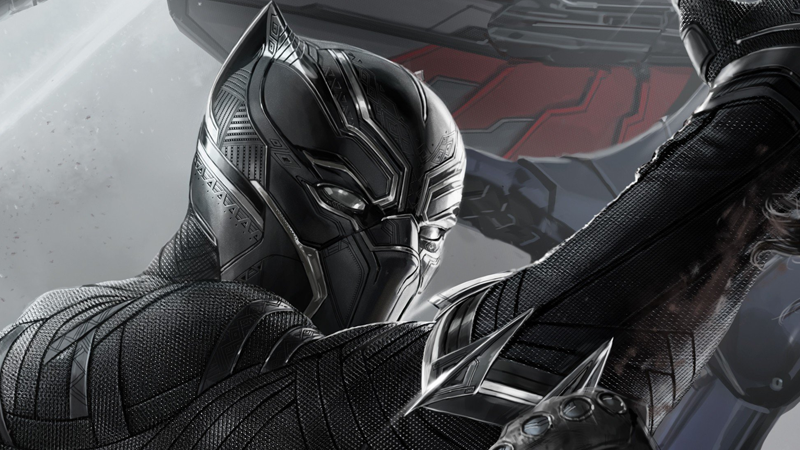
It’s going to be a good year for Marvel’s Black Panther. Not only is he getting an extremely promising new comic book series, in a few months he’s making his Marvel cinematic universe debut in Captain America: Civil War. If you’re not familiar with the superhero, king and Avenger, here’s your primer.
Clik here to view.
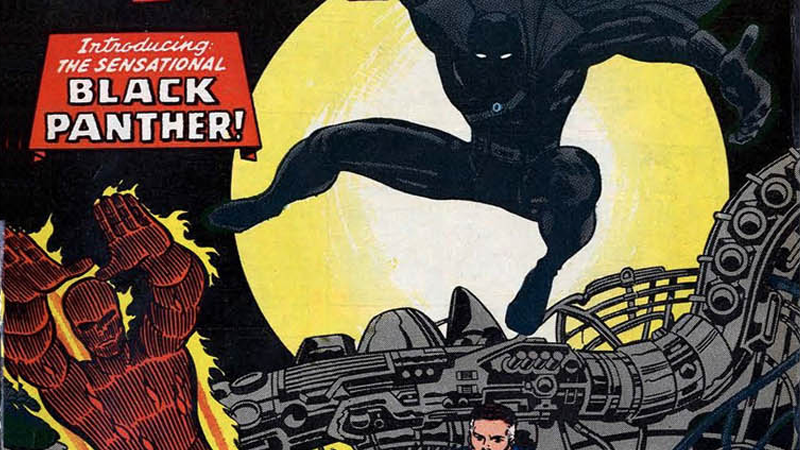
1) He was the first black superhero in mainstream comics.
Although there were black heroes before him—back when Marvel was still Timely Comics in the ’50s, it published stories about “Waku, Prince of the Bantu” in Jungle Tales—Black Panther is widely credited as the first black superhero to debut in mainstream comics. Although he first appeared in Fantastic Four #52 in April 1966, T’Challa wouldn’t actually star in his own comic book until 1973, when he headlined Jungle Action, another jungle-themed anthology that stretched back into Marvel’s history when it was Atlas Comics (the company went through multiple name changes in the ’40s and ’50s).
Clik here to view.
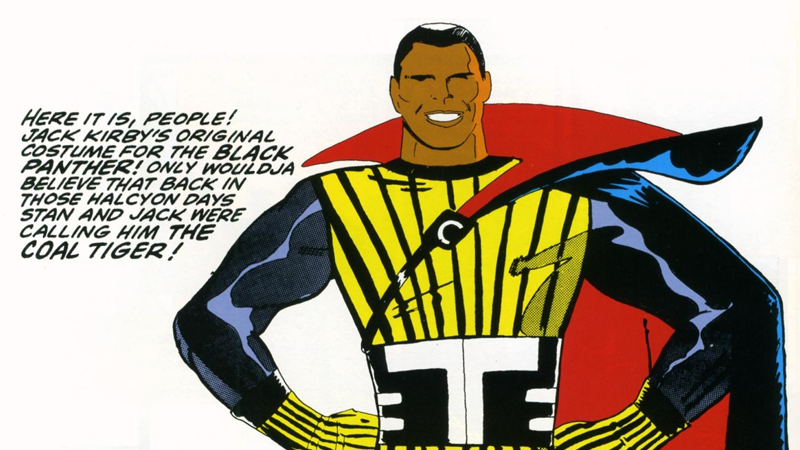
2) He actually predates the Black Panther party.
When Stan Lee and Jack Kirby were creating T’Challa, he almost had a radically different design, featuring no mask and a much more colorful costume. (As you can see, Lee also says he was going to be called Coal Tiger, although it plausible at least as likely that this is a joke on Lee’s part). The two eventually re-worked the design, and then six months after he debuted, Huey Newton formed the radical nationalist political organization called Black Panther Party later in 1966, known for its armed patrols to protest police brutality against African Americans.
People have long since assumed that Lee and Kirby were inspired by the Black Panther Party when creating Black Panther, but it was simply a coincidence—although the BPP’s rise though did briefly become a point of contention for Marvel. In 1972, as the Panthers reached the apex of their influence, T’Challa returned in Fantastic Four #119, calling himself Black Leopard as he pondered a return to the US, where his former name now had “political connotations.” The name change and acknowledgment of the Black Panther Party was never mentioned again.
Clik here to view.
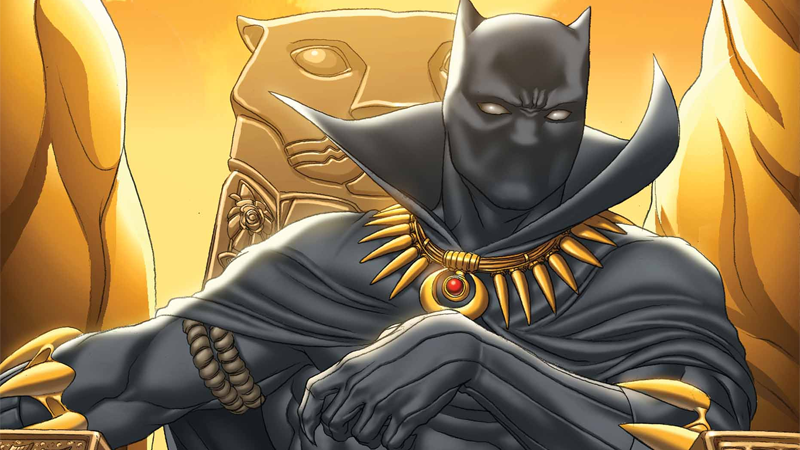
3) He’s royalty.
T’Challa’s life is dominated by legacy. Not only is the Black Panther role a hereditary title passed down throughout his family (although rigorous mental and physical tests have to be passed before one can assume it), he’s also from the ruling family of the Panther Tribe, who govern the independent African nation of Wakanda. T’Challa earned both the right to rule and the Black Panther persona (as well as the powers that come with it, gained from eating a mysterious plant poisonous to many non-Wakandans) from his father, T’Chaka.
Clik here to view.
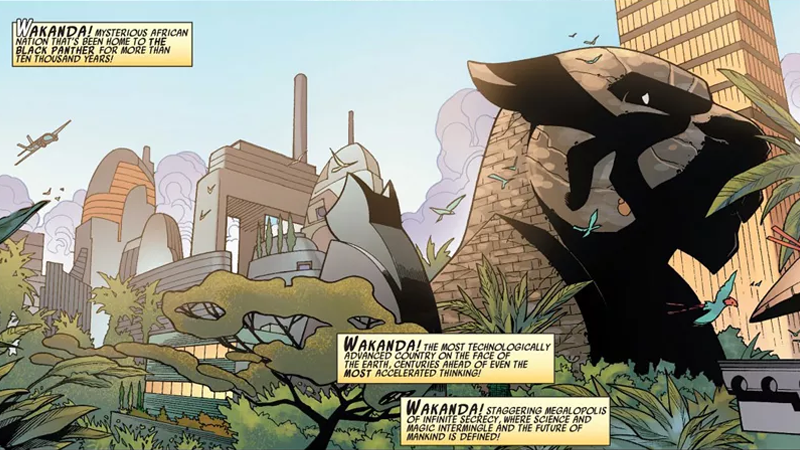
4) He rules over the most advanced country in the world.
As T’Challa is the Chief of the Panther tribe, you might have imagined that makes Wakanda some remote, tribal country. Nope. On Marvel’s Earth, Wakanda is one of the most important countries on the planet, a leader in scientific and technological advances. The country is one of a handful of places where vibranium (the near-indestructible metal that Captain America’s shield is made of) can befound, and the country’s isolationist nature has ensured Wakanda is decades ahead of the likes of the US when it comes to a technological standpoint.
Clik here to view.
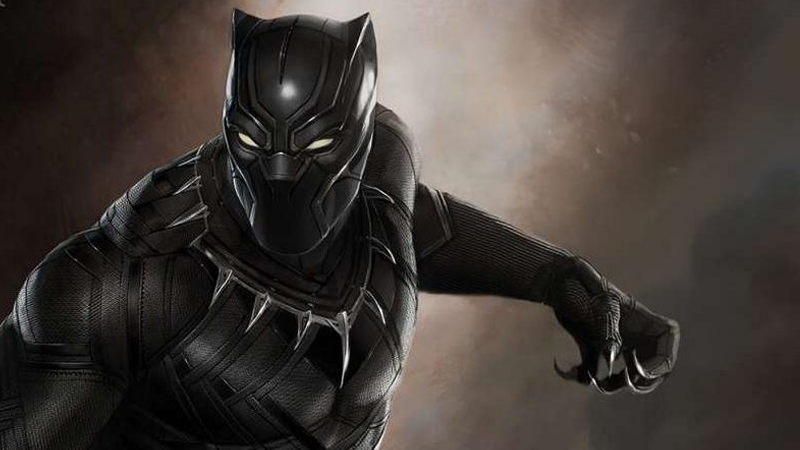
5) He is essentially Marvel’s answer to Batman.
Black Panther and Bruce Wayne share a lot more in common than a fondness for pointy ears on their cowls. T’Challa is pretty much Bruce Wayne, except that the Black Panther also has a few superpowers. One of the smartest people in the world—he’s on a level with super geniuses like Tony Stark and Reed Richards— T’Challa is also incredibly skilled in armed and unarmed combat. He’s also at the peak of human strength and agility, on par with Captain America. This means...
6) Like Batman, he can beat down opponents who are much more powerful.
Clik here to view.
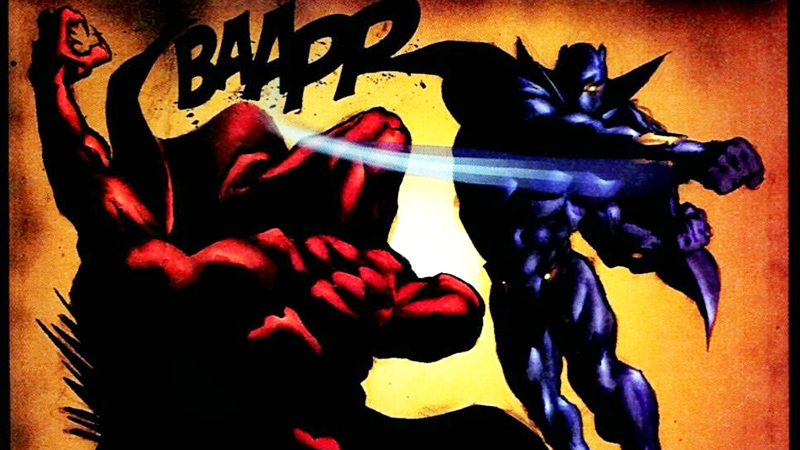
Black Panther always has a plan. He’s renowned as a master tactician, and between his supersmarts and his fighting skill, it means as a hero he can punch above his weight more often that not. He’s single-handedly defeated villains like Doctor Doom, and yes, he’s even gone up against teams of his fellow heroes and handed their super-butts to them easily. Like I said, his first ever appearance was to beat up the Fantastic Four, pretty much for shits and giggles.
7) The Civil War movie isn’t the first time someone’s tried to bring him out of comics.
Chadwick Boseman might be the first person to actually bring Black Panther to the big screen, but it’s not only not the first time an actor has brought the character to life. Djimon Hounsou voiced T’Challa in a 2010 animated series that ran on BET, and you can see the opening titles above. Additionally, Civil War isn’t even the first time someone’s tried to make a Black Panther movie. In fact, it’s happened twice before!
Wesley Snipes was linked to a potential Black Panther movie from Columbia pictures in the early ’90s, but plans fell through .Later, after Snipes went on to portray Marvel’s vampire hunter Blade, the project was again considered. We almost got a Snipes-starring Black Panther movie in 2004, instead of Blade Trinity.
8) One time, he took Daredevil’s job in Hell’s Kitchen to do some soul-searching.
Clik here to view.
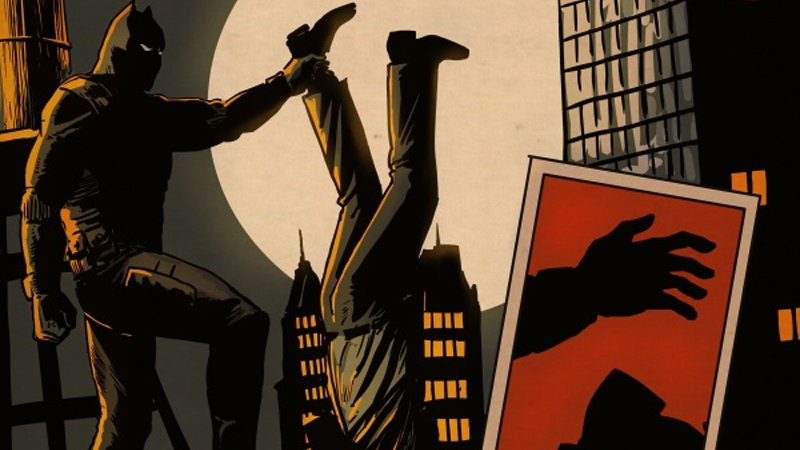
This should tell you a lot about T’Challa’s character: when Matt Murdock was busy getting over the comically depressing event of being possessed by an actual demon after the Shadowland comic arc, T’Challa offered to step in as Hell’s Kitchen’s erstwhile defender while Daredevil was out of action.
T’Challa himself was going through a rough patch where he found himself spiritually broken after a battle with Doctor Doom. Adopting the persona of diner manager Mr. Okonowo, he set up shop in Hell’s Kitchen and spent his nights getting back to his roots as Black Panther... while savagely beating up bad guys. That’s Black Panther’s idea of a spiritual retreat, basically.
Clik here to view.
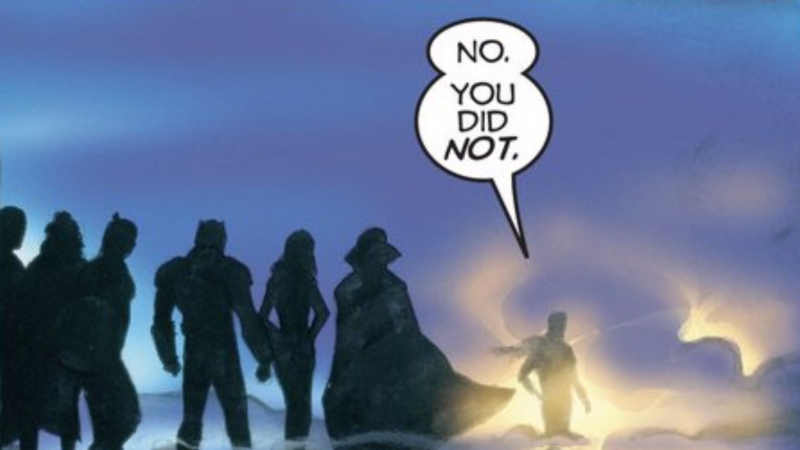
9) He’s been on a ton of superhero teams, but isn’t much of a team player.
Black Panther joined the Avengers in his second-ever appearance, and since then he’s not just remained one of Earth’s Mightiest Heroes, but joined the likes of the Ultimates, the morally-grey Illuminati, and even briefly lead the Fantastic Four into battle.
But despite his reputation as a stalwart team member, Black Panther’s highest priority is to himself and the people of Wakanda. This isolated nature is maybe best captured in Chris Priest’s seminal run
Clik here to view.
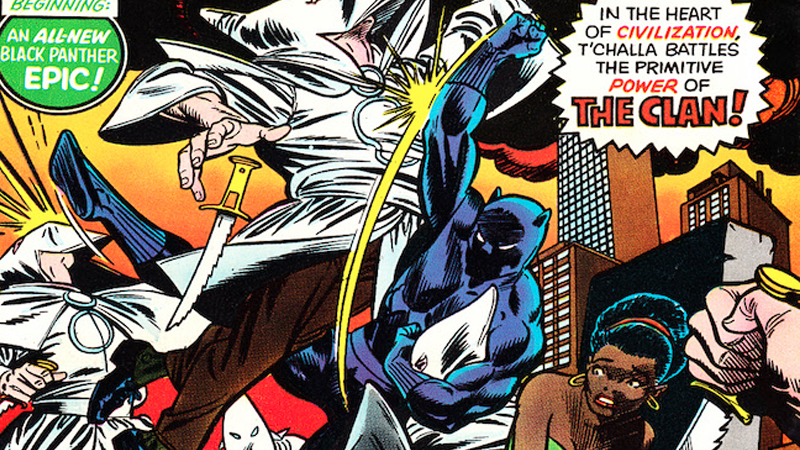
10) He totally kicked the KKK’s kollective asses.
Hot off the success of Don McGregor Panther’s Rage, one of Marvel’s first experimentations with self-contained story arcs, the very next story saw T’Challa travel to Georgia with his then-girlfriend, where he ended up fighting a white supremacist organization that wore conical hoods and were technically not the Klu Klux Klan but look at them and their pointy white hats. McGregor could only refer to them as “The Clan” in the actual comic, and it was incredibly controversial at the time, but yes, Marvel’s first black superhero beat up the KKK.
Clik here to view.
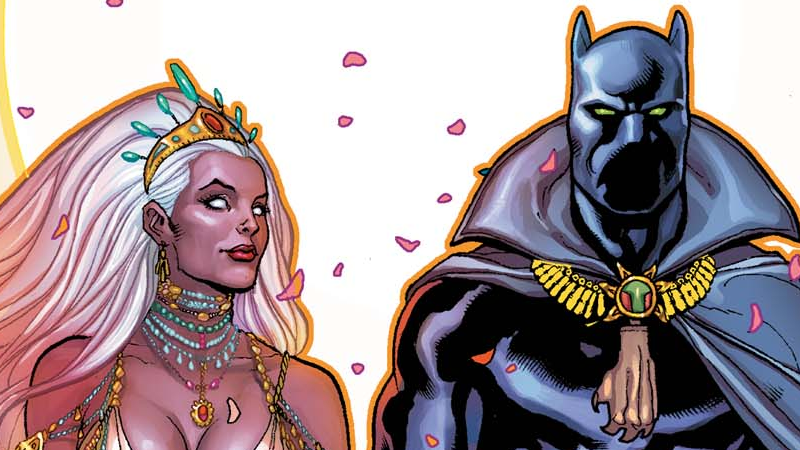
11) He and Storm were once the ultimate Marvel power couple.
T’Challa and Ororo Munroe are two of the most prominent black characters in Marvel’s roster, and their 2006 marriage was such a huge deal, Tony Stark and Steve Rogers took a break from fighting each other in the comic Civil War event to celebrate it.
Fans loved the characters together, but the marriage wouldn’t last. In a controversial move, their relationship was annulled in 2012 when Black Panther banned all mutants from Wakanda following an attack by a brainwashed Namor the Sub-Mariner. Many assumed the couple’s split was because there were plans underway to bring T’Challa to the Marvel’s cinematic universe, where he couldn’t bring his wife—Storm being part of Foz’s X-Men movie rights.
Clik here to view.
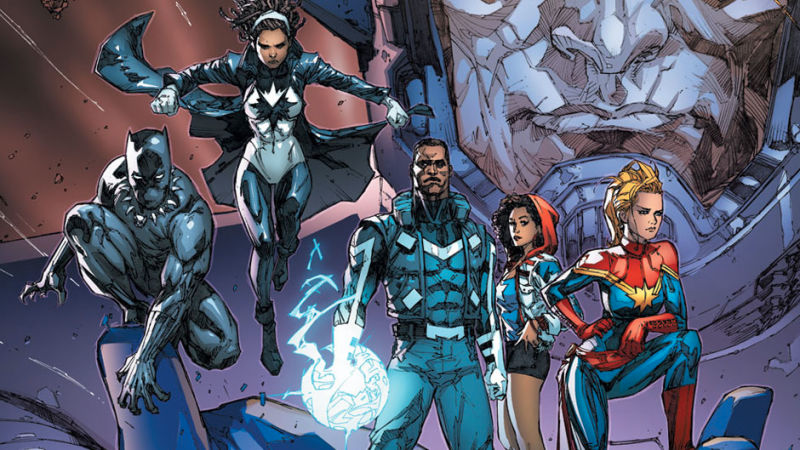
12) He’s currently helping solve the biggest problems to the Marvel Universe.
In the current “All-New, All-Different” update of Marvel’s comics, Black Panther stands as a member of the cosmic superteam the Ultimates alongside Captain Marvel, Monica Rambeau, America Chavez, and Blue Marvel. The team works together to safeguard the Earth from cosmic threats, capable of doing so thanks to support from advanced Wakandan technology.
Their first story saw them manage to turn Galactus into a life-giving cosmic force
Clik here to view.
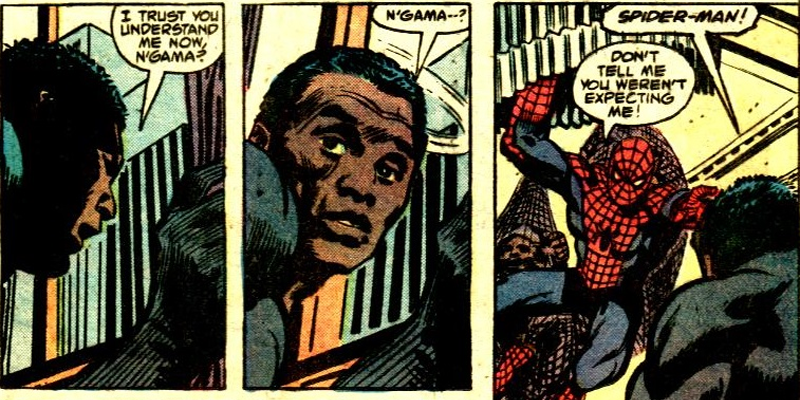
13) Spider-Man may have screwed with his Civil War role.
Although Civil War marks Black Panther’s movie debut, the recent addition of Spider-Man to the Marvel Cinematic Universe might mean there’s a little less of him in the movie. When Civil War was first announced, Black Panther was touted as a hero who would be a neutral, a never-before-seen hero without links to Steve Rogers or Tony Stark that would be able to offer a fresh perspective on the conflict between the two former friends. This neutral party is pretty much the role Spider-Man filled in the original Civil War comic.
But when Sony made the deal to allow Marvel access to the webslinger, the Civil War scripted was altered to accommodate him—and it’s likely that Spidey is returning to his role as “hero trapped in the middle.” As such, it’s almost certain that Black Panther’s place in the story has been diminished, and he’s less integral to the movie’s plot. Hopefully that’s not the case, though, because it’s a long wait until Black Panther drops in 2018.
Clik here to view.
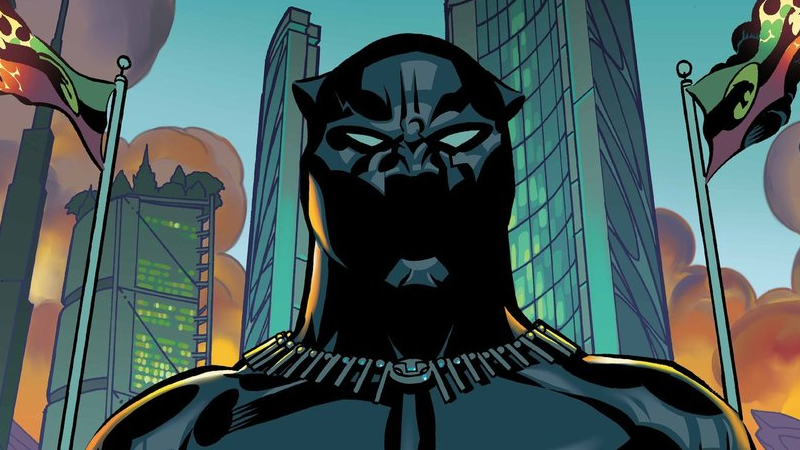
14) You really should be excited for his new comic.
If you were looking for a Black Panther comic to read up on before Civil War came out, there isn’t one at the moment—but there will be soon. It’s coming from a ridiculously exciting creative team
Coates, best known for his work across dozens of publications as America’s foremost commentator on African-American culture in the modern day, will open the series with an arc that delves into T’Challa’s rule over Wakanda as the country comes under attack from superpowered terrorists. Given Coates’ background (this is his first writing gig for a comic), it’s hard not to look forward to what he can do with the legacy of a character like Black Panther. Just in time for you to pick up an issue or two before you go see Civil War!